National News Legal
Supreme Court strikes down Maratha reservation

Save Merit Save Nation? chief campaigner President Dr Anil Laddhad in apex court, in three petitions, challenged the Mumbai High Court judgement.
The Court said that there were no extraordinary circumstances to grant reservation to Maratha community over and above the 50 percent ceiling on reservation prescribed by the Supreme Court in its 1992 judgment in Indra Sawhney v. Union of India.
“The 2018 Act as amended in 2019 granting reservation for Maratha community does not make out any exceptional circumstance to exceed the ceiling limit of 50 percent reservation,” the Court held.
The Act of 2018 violates the principles of equality and exceeding ceiling limit of 50 percent clearly violates Articles 14 and 15 of the Constitution, the Court added.
In the process the Court also ruled that the 1992 judgment of the Supreme Court in Indra Sawhney v. Union of India need not be referred to larger Bench and the 50 percent ceiling on reservation laid down in Indra Sawhney case is good law.
“We do not find any substance in the argument to refer the judgment in Indra Sawhney to a larger Bench. The said judgment has been repeatedly followed by this Court and has received approved by at least four Constitution Benches of this Court. We also follow and reiterate the proposition laid down in Indra Sawhney in paragraph 809 and 810,” the Court made it clear.
The Court further said that neither the Gaikwad Commission report nor the judgment of the Bombay High Court has made out an extraordinary situation in the case of Marathas so as to exceed the ceiling of 50 percent.
“Conclusions of the Commission are unsustainable.There is no case of extraordinary situation for exceeding the ceiling limit of 50 percent for grant of reservation to Marathas over and above the 50 percent,” the Court emphasised.
A Constitution bench of Justices Ashok Bhushan, L Nageswara Rao, S Abdul Nazeer, Hemant Gupta and S Ravindra Bhat delivered the judgment.
While senior advocates Arvind Datar, Gopal Shankarnarayan, Shyam Dewani, Dr Rajiv Dhavan, Siddharth Bhatnagar, Ravi K Deshpande, (assisted by Adv Hrishikesh Chitaley and Adv Ashwin Deshpande) appeared for petitioners, KK Venugopal, Mukul Rohatgi, Patwaliya, Kapil Sibal appeared for respondent.
Legal
Karnataka High Court says wearing hijab non-essential practice in Islam; upholds ban
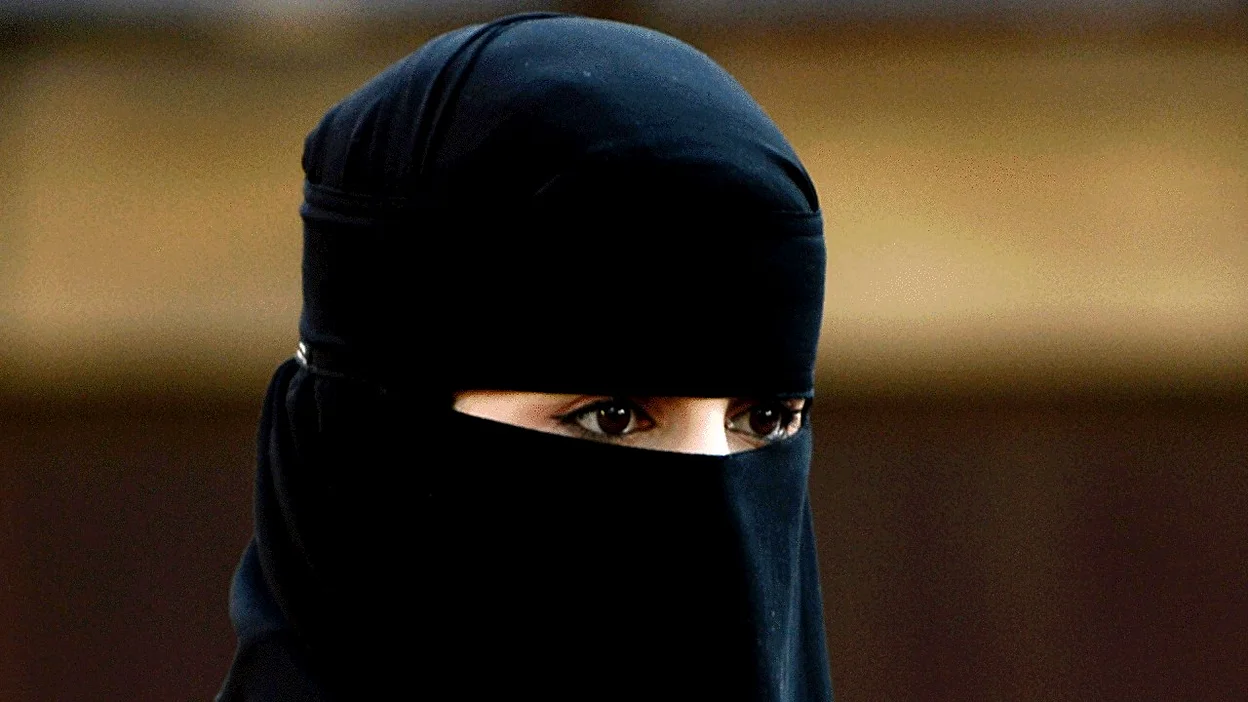
Representational image
The Karnataka High Court on Tuesday upheld hijab ban by dismissing petitions filed by a section of Muslim students from the Government Pre-University Girls College in Udupi seeking permission to wear hijab inside classrooms.
The court upheld the state government ban by saying, The prescription of school uniforms is a reasonable restriction.
The court further said hijab was not an essential religious practice in Islam. However, the petitioners are likely to challenge the ban in the Supreme Court.
“Met my clients in Hijab matter in Udupi. Moving to SC soon In sha Allah. These girls will In sha Allah continue their education while exercising their rights to wear Hijab. These girls have not lost hope in Courts and Constitution,” lawyer Anas Tanwir wrote in a tweet.
The court was answering three key questions on the controversy namely:
1. Whether wearing hijab is an essential religious practice in Islamic faith protected under Article 25?
2. Whether prescription of school uniform is violative of rights
3. Whether government order on February 5 was issued without application of mind and manifestly arbitrary?
A three judge bench comprising Chief Justice Ritu Raj Awasthi, Justice Krishna S Dixit and Justice JM Khazi delivered their verdict on the ongoing hijab controversy at 10.30 am today.
Ahead of the hijab row verdict, Section 144 was imposed in Bangalore and educational institutions remained closed.
Legal
SC grants bail to Rajiv Gandhi’s assassination convict AG Perarivalan jailed for 32 years

Rajiv Gandhi
The Supreme Court, on Wednesday afternoon, granted bail to AG Perarivala, one of the seven convicts in former Prime Minister Rajiv Gandhi assassination case.
However, the remission of his life imprisonment is pending before the President of India. AG Perarivala was serving life sentence and was jailed for almost 32 years.
Granting him bail, the court, in its order, said: Since Perarivalan has already undergone sentence for more than 30 years, we are of the considered view that he is entitled to bail in spite of the vehement opposition by the Additional Solicitor General Additional KM Nataraj.
Legal
Supreme Court to allow journalists inside courtrooms for physical hearing of cases

The Supreme Court of India, on Thursday, October 21, resumed hearing of cases and pleas in the physical mode for the first time since March 2020, when the COVID-19 pandemic broke out in India.
The Supreme Court has recently issued new SoPs for hybrid hearings as per which all cases on Wednesdays and Thursdays to be heard only in the physical presence of the counsels/parties in courtrooms.
Along with this, SC also decided to allow media persons inside the courtroom during the physical hearings. However, journalists would have to strictly adhere to COVID-19 related norms and protocols.
?With the physical hearing in the Supreme Court of India commencing tomorrow (Thursday, 21 October 2021), it has been decided to allow the media persons, subject to usual COVID restrictions, into the courtrooms for covering the proceedings,” said the top court in a press note.
Supreme Court heard cases through video conference since March last year due to the pandemic and several bar bodies and lawyers demanded that the physical hearings should be resumed immediately.
-
Health5 years ago
Amphoterecin B, used for treating black fungus, to now be manufactured in Nagpur
-
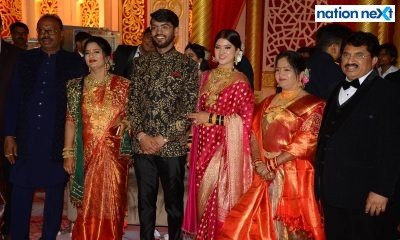
 Social4 years ago
Social4 years agoPoliticians, businessmen shower blessings on Chandrashekhar Bawankule’s son Sanket at his wedding reception
-
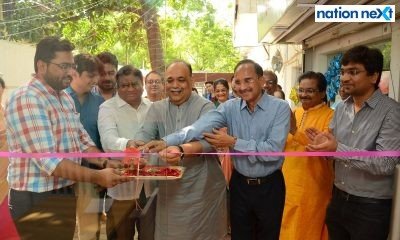
 Social4 years ago
Social4 years agoNagpur gets its first 7 am cafe ‘SEVEN O’ ELEVEN’ at Shraddhanand Peth
-
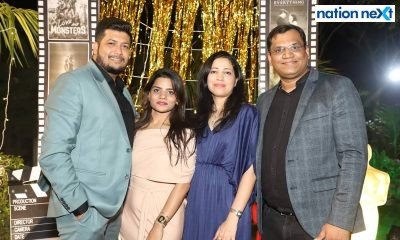
 Parties4 years ago
Parties4 years agoCouples have a blast, win awards at ‘Hollywood Oscar Night’ in Nagpur
-
Who´s Partying Next To You9 years ago
Nagpur brings in 2017 in style at Gondwana Club
-
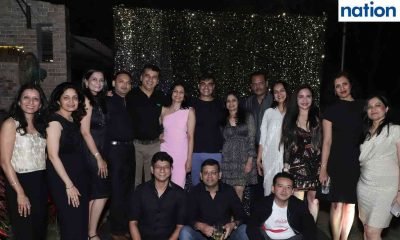
 Parties4 years ago
Parties4 years agoFamily, friends ‘wine n dine’ at Dr Shilpa Mukherji’s birthday bash in Nagpur
-
Who´s Partying Next To You8 years ago
Party revelers make noise at Nagpur’s first silent party on New Year Eve at Gondwana Club
-
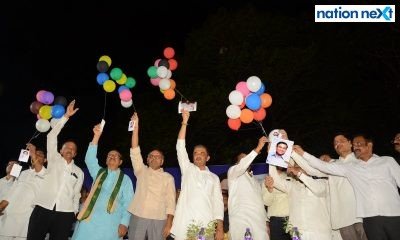
 Social4 years ago
Social4 years agoSunil Kedar kicks off 10-day Late Dr Shrikant Jichkar Memorial Cricket Tournament in Nagpur








